#Patmos
Photo

Patmos, Greece
IG: ilovepatmos
#patmos#greece#greek island#greek islands#travel#vacation#travel goals#greek architecture#bougainvillea#greek village#greek aesthetic#greek vibes
379 notes
·
View notes
Photo

Patmos Aktis Suites and Spa (Greece)
#patmos#greece#breakfast#travel#wanderlust#islan#greek island#greek islands#dodecanese#patmos island#sea#vacation#vacay
165 notes
·
View notes
Photo

Johannes der Evangelist auf Patmos von Cosimo Tura
#kunst#kunstwerk#art#artwork#cosimo tura#artist#künstler#religion#religiöse kunst#religious art#johannes#john#johannes der evangelist#saint john#saint john the evangelist#patmos#bibel#bible#glaube#faith#beten#pray#jesus#christ#gott#god#vater#father#herr#lord
22 notes
·
View notes
Text

Windmills of Patmos island, Greece 🇬🇷
Photographer: @minadel76
148 notes
·
View notes
Text

Satan (the dragon; on the left) gives to the beast of the sea (on the right) power represented by a sceptre in a detail of panel III.40 of the medieval French Apocalypse Tapestry, produced between 1377 and 1382.
#christianity#book of revelation#the beast#Thērion#Antichrist#The First Beast#the bible#eschatology#jehovah#yahweh#el#jesus christ#jesus of nazareth#angel of light#end times#armageddon#Saint John the Evangelist on Patmos#John of Patmos#Patmos#St. John of Revelation#Island of Patmos#Judaism#the devil#medieval#art
12 notes
·
View notes
Text

“Monastery of Saint John the Theologian Patmos “The island of Apocalypse”🙏🙏 #Greece
140 notes
·
View notes
Text

Buddha On the Island of Patmos (2017) by Alexander Roitburd
7 notes
·
View notes
Text
| ᴀᴘᴘᴇɴᴅɪx ᴏɴ ᴍᴇᴅɪᴏᴄʀɪᴛʏ
ᴡʀɪᴛᴛᴇɴ ʙʏ ʙᴇʟᴀ ʜᴀᴍᴠᴀꜱ ɪɴ ᴘᴀᴛᴍᴏꜱ ɪ (1958-1964)


If the child, writes Plotinus, does not show any talent and seems unfit for a more serious career, the parents say that it would be best to give it to a trade. They do it today the same as they did a thousand and seven hundred years ago. The difference is that they were then aware of the mediocrity of the person who practised the trades. Today, however, the untalented, not so much with their numerical predominance, but rather with and due to the nature of modern civilization, considers itself the sustaining element of humanity. At this moment, there is no mention of Bernard Shaw's comment, who, with his usual inventiveness and his usual frivolity, considers the chauffeur-type to be the man of the future. At this moment, due to the power of technology, he who is usually called technical dictates. Which is just another name for a craftsman. Technology is not and never will belong amongst the representatives of the human spirit. But the overcrowded schools today are the technical colleges and universities, because a person without skills can easily get a well-paying job following what he learned here. This person dictates the standard of thinking and lifestyle and taste and morale and mood. To achieve the lifegoods are the easiest to him. This man has a so-called success.
We are not talking about technology. What we are talking about is the technician. A. Perron⁴⁴ says that the technique is puerile, typically a product of the imagination of the adolescent child. Everybody has a more or less developed technical age, but by the age of eighteen, in the normal man, it passes away. The technical imagination, once it reaches intellectual maturity, is only stays in the hands of the man without higher qualities. It is a pity, says A. Perron, to speak of the realisation of particularly great values in connection with technology. Behind all technical civilization is the Jules Verne idea of wanting to furnishes the world like Captain Nemo furnishes the Nautilus. If the hundred-seater turbine-jet aeroplane is to be valorised in spiritual terms, it must be we have to admit that it's value is not more than a carousel's. Rather it is less.
The literature of technocracy is large, but unusable, says E. B. Wallace⁴⁵. The opinion of every author is decided by some sympathy or aversion, as if it were impossible to take a disinterested position on this issue. Technology has become the focus of tensions in worldviews. Spiritualists reject it principally and unconditionally just as materialists praise it. European thinking does not have, and has never had, the unbiased measure that can determine the significance of technology without preoccupation. With a few exceptions, our thinkers have merely framed the passions of history well and badly, but there has been no one who could see the whole thing from above. European thought is the 'gifted personality', but do not stands in the sign of an absolute spirit. It takes more than being an interesting person to the truth.
Mircea Eliade claims that the earth's chthonic rhythm is pretty slow, and the goal of technology is to speed up this rhythm. Human takes over the role of time. What the earth's physical-geological-chemical life creates over thousands of years, man can do even in a matter of minutes with his technology. Man melts metal, cleans it of elements that do not belong there, or mixes it appropriately with other elements, shapes it and makes tools. It shortens natural processes, and what it achieves is always the more in shorter time.
Here is one of the interesting theories of European man, which is as much witty as it much is frivolous. The author do not really tell us the most important thing. What is the purpose of this shortening? Why do people take over the role of time and speed up processes?
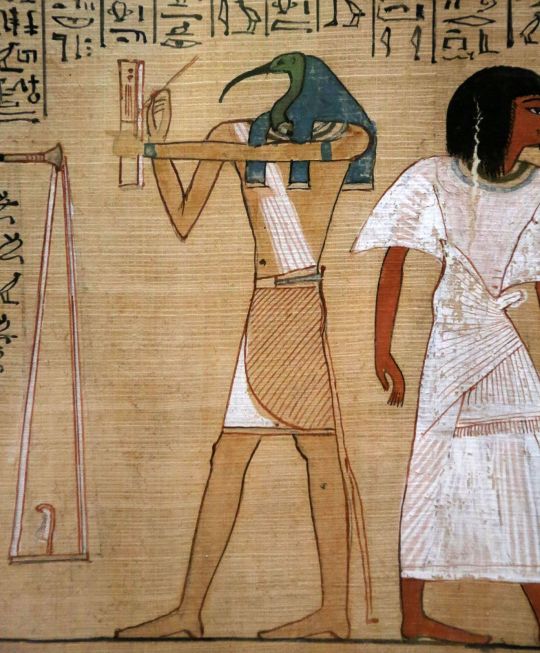
Man's behavior towards nature can be of three types. The first is metaphysical, which wants to lift up every speck of dust in nature and wants to ennoble it. This primordial behavior for us, after it has completely disappeared even from historical religions, has preserved by the tradition of alchemy. Alchemy wants to turn the world into gold, that is, it wants to raise it with every atom to the world of the incorruptible and imperishable spirit.
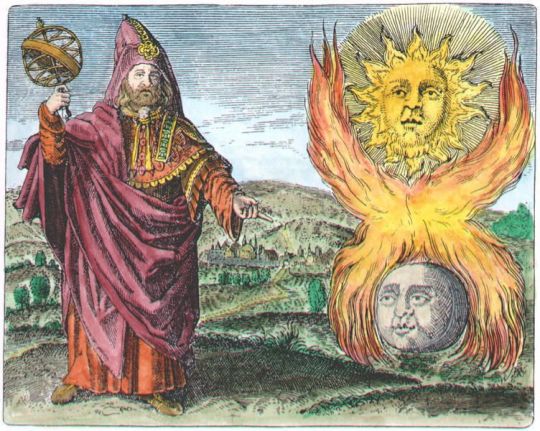
The second behavior is man's paternal care for nature. Archaic cultures arose from this care. Where farming and animal husbandry are still intact, this spirit lives on.

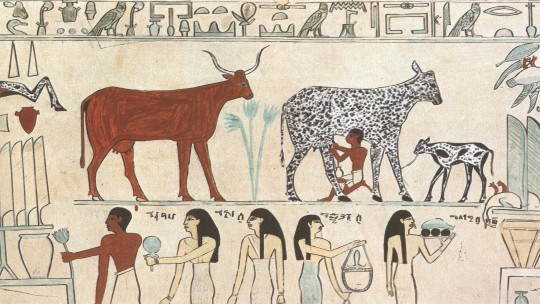
The third behavior became common with the passing of the archaic era, and it is the robbery of nature. If one take a look today to the mines, the scorched primeval forests, the plundered seas, the slaughtered animals and primitive peoples, and the billions of civilized bondman slaves, one can have no doubt as to what is happening here. For a short time in the last century, it seemed that socialism would create a perfect change in the way of life, and everyone believed that it would end this exploitation. The opposite happened. Socialism is a European theory just like the others, it is not a solution to a crisis, it is only a product of crisis, that is, it cannot grasp things from above, it only articulates the difficulties with great difficulty. Instead of creating a radical solution, it only intensified the robbery and rather justified his crimes with a stupid ideology.
Some consider the life-destroying nature of technology to be a forced consequence of overpopulation. This frenzied robbery economy would make no sense anyway. The author⁴⁶ delights in the usual horror statistics that we all know: how many people were on earth in 1800, how many in 1900, how many we will be in 2000. He secretly hopes that nuclear war or an epidemic will thin our ranks. If this did not happen, the situation would be hopeless. In a few hundred years, there will be four people per square meter on earth, which means that we will have just as much space to stop as on a crowded tram. These people, says G. B. Balling, will have a socialist ideology of a high order compared to today's simple barbarism. They just won't have anything to eat. The predatory nature of the technique is beyond doubt. However, this robbery is a compulsion that must be continued because there are many of us. If we had a normal economy, more than half of humanity would starve. Invention, says the author, is a function of population density. The anxiety caused by the ever-increasing population forces people to create more and more opportunities for robbery, and to exploit those opportunities with ever faster and more efficient methods. If the population of the earth were to decrease to the level of 1800, technology would cease to be eighty percent, if only because there would not be enough of us to maintain the industrial estates employing a large number of people and the densely stratified occupations. Cybernetics would disappear like nylon and canned pineapples.

Of course, things can be even reversed. It is not at all certain that the regularization of robbery was caused by overpopulation. It could easily be that the exploitation that has become general, that is, the conscious breeding of slaves — just to have as many workers as possible and the labor as cheap as possible — caused such a horrible increase in the population. It seems that they want to explain the organized robbery economy with the necessity of population density, which is nothing more than a lame excuse. One cannot be careful enough with a theory that ascribes some crisis in life to external causes and wants to absolve the person from mandatory responsibility. The first reason is always the individual. The responsibility must be assumed not only out of fairness, but also because it makes sense, so there is a possibility for the person to change the situation he has recalled with his own will.
There is also an author⁴⁷ who attempts to bring technology and the office to a common denominator. The two really have something in common in life-destroying mechanization. One could also say that bureaucracy and technocracy are both by-products of modern utopianism. The author considers the office to be older, but technology to be more harmful. Today, in their demoralizing effect, they work together in wonderful harmony, as if both have the goal of exterminating life. G. W. Ballington is otherwise a more thoughtful type of journalist, who noticed the life-destroying effects of the two modern phenomena, but who did not notice the functional difference between office and technology. The office is always a question of humanity, the tension between the organism and the organization. Technique is the question of the living and the inanimate, the tension between the organism and the mechanism. The aim of the office is to corrupt the joy. The technique is a suicide attempt.
The natural consequence of man's activity to acquire more in a shorter time is twofold: one is that life speeds up, and the other is that it becomes more and more empty. E. B. Wallace calls this phenomenon loss of life-essence⁴⁸. Always more in less time. In ever shorter time, as far as possible. Run or swim a hundred meters in as little time as possible. Throw the javelin as far as possible. Jump as far and as high as possible. Lift as much weight as possible. This is the modern hero. How many bricks does the Stakhanovist lay in one hour? The speed of automobiles is two hundred kilometers per hour, so are trains, and airplanes travel at the speed of sound. One person manages thirty machines, the other forty. It is necessary to accelerate the development of plants with radiation. You have to produce more in a smaller area. More people need to be accommodated in fewer places. Bunk beds, two-level bunk beds. To make use of space, time, material, strength and energy. This grandiose idiocy is called rationalism. Rationalism is the metaphysics of robbing life. The faster someone runs a hundred meters, the less sense it all makes. There is a performance that is absolutely absurd. Rationalism is a great example of how could be something is reasonable and completely nonsensical as well at once.
Let's plant as many sugar beets as possible in as small an area as possible. This is what is reasonable. Take advantage of it. As fast as possible. No one has ever asked the question, what happens to the time you save when you do something faster? The word production is used misleadingly for this phenomenon. It's more clear as the day that it's a robbery. Sow twice a year. Growing five kilo potatoes. To introduce growing of oranges and bananas in the Arctic Circle. Shortening the production processes. The shortest way under the fastest time. This is what Mircea Eliade calls the acceleration of the rhythm of nature, when man takes over the role of time and dictates a faster pace. He wants to swim the hundred meters faster, but he doesn't know what to do with the time he saved. M. Eliade is certainly not a musical person and does not know the difference between rhythm and beat. Nature, life, thinking, and art have a rhythm, a pulse given together with life. And the mechanics are cadenced. The machine is automatic. Rhythm and beat can never be confused. If you use beat instead of rhythm, the result is loss of life-essence. The dance is rhythmic, the military step is cadenced. The heartbeat is rhythmic, the metronome is cadenced, even if numeric values of these two is the same. Rationalist thinking is an abbreviated and accelerated thinking from which the essentials of life have disappeared. Rationalism is the mindless pace that stands in one place, which has no meaning that can be called by any name. It is the modern chase and the record and the performance, the speed, the lust for life, and hurrying, and the foaming and the lagging and the dizziness and the absence of essences, when the individual is nothing more but only existence in Nothingness.
In every civilization, says Perron⁴⁹, there is a degree which may be called the minimum of spirituality, and there is every indication that this minimum is the same in all civilizations. A productive life is only possible on top of this. When a person reaches the freezing point, his life is not controlled by spiritual forces, but by pseudo-spiritual compulsions, which we know from the psychology of the weak-minded, the immature, the primitive, and the psychopaths, and which the common parlance calls obsessions. Obsession is a mere psychological phenomenon without spiritual content. A. Perron claims that if a person descends to the spiritual minimum because he loses control over himself, he can become a free prey to all abnormalities. The abnormality is precisely that a person is governed by an obsession instead of a rational spirit. In general, a person without talent can be recognized by the fact that their life contents are pseudo-spiritual. Lack of talent is actually a kind of intellectual minimum. The life of society depends on the wealth of talents within it. The dissolvance of society begins with the disappearance of talents.
Rationalism is actually an obsession that arose from the spiritual minimum of European civilization at the beginning of the modern age. Technology, un rêve défaillant, a fainting dream, was born of this pseudo-spiritual compulsion. What does this dream dreams? Jules Verne novels. Airships and airplanes and wireless telegraph and radio and television, rocketry and sustainable flight, travel on the stream of fire to the center of the earth, electromagnetism extracted from the air, and solar energy stored in boxes. Captain Nemo sits in his Nautilus, twelve thousand meters under the sea, alone. The submarine has its own power plant, shining light everywhere. He has his own way. Its own oxygen generator. He presses one of the buttons and the invisible organ plays Bach's Mass in B minor. He presses the other button and the television plays Hamlet. In the meantime, he gets hungry, presses the third button, and the table rolls in, with an eight-course lunch and port wine. He presses the fourth button and see the Moon and Venus and Jupiter up close through the telescope. Pressing another button, the submarine starts and rises to the surface of the sea, there is another button, the Nautilus grows wings, rises into the air and climbs to the top of Mount Everest. Captain Nemo sits on deck and smokes a pipe, watching the hurricane raging in the mountains, while he presses a button and a glass of fresh grapefruit juice appears on the table. He only needs to know which button to press. Captain Nemo is very careful that if he wants to listen to the Sunday sermon in Westminster Abbey, do not press the button that fires forty shells per minute from the automatic rapid-fire cannon. Captain Nemo is a colossal man because he takes all of this seriously and swears by the push-button theory. He invented and built all this himself. If this charms a sixteen-year-old, it is understandable because this is his world. If this is a mature person, then un rêve défaillant. However, if it becomes to an entire civilization, then it is a collective lunacy. And if this collective insanity prepares for war and makes tactical weapons, then that is what can be called suicide. Captain Nemo is a dangerous opponent. Not because he is smart, but precisely because he is unheardly limited and short-tempered and without talent. Because he's mediocre. Because he is immature and has no idea about the values of humanity. He only cares about which button he press. If he were a student, there would still be a chance that it would be worth it. But he is a grown man, so the situation is hopeless. Captain Nemo lives below the spiritual minimum and doesn't even know what he's doing, like the student who gets drunk from sudden knowledge on how to develope chlorine—and poisons the whole house.
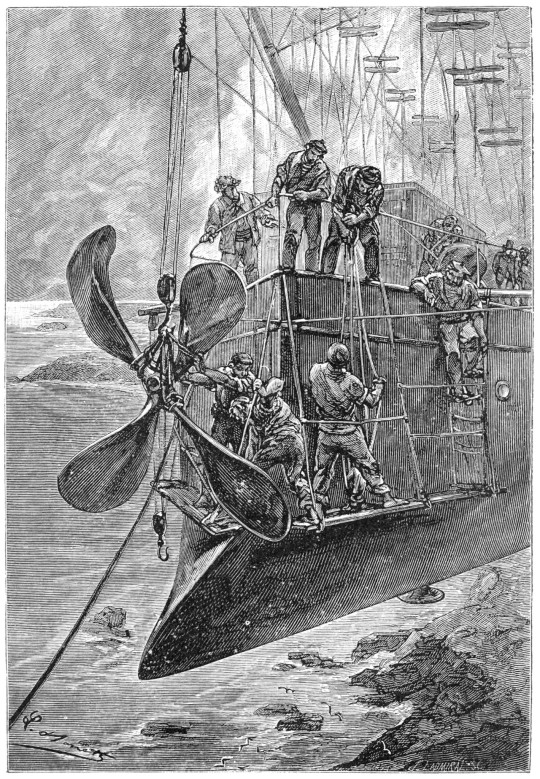
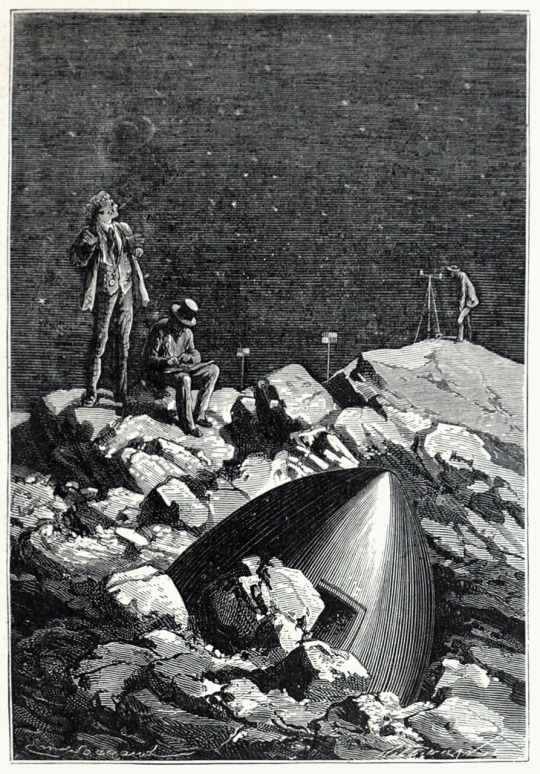
More recently, the name homo faber has been coined for the mediocre people. Homo faber means crafting man. This is the one about whom Plotinus says that he is unfit for a serious career. If one wants to understand this man, one must turn to the Hebrew tradition. This tradition teaches that creation is only perfect if it passes through four stages. Creation is born in the realm of potentials (aziluth) as possibility and thought. From there it moves into the virtual world (berijah), this is the first step of realization. Then it must be shaped (jezirah) and finally physically made (assiyah). Homo faber only lives in this last, fourth circle. It deals only with what needs to be done manually and physically. What is usually called an invention today is such a monstrous creation that does not affected by the spiritual phases, which is why it is such a wasteful creation. That is why most of the machines are strange and grotesque. The machine was not made to be an object of joy forever, like a work of art. All machines are gnome-like because they are mere fabrications. The Homo faber is such a clumsy man. The operation of the machine is scary, and comical at the same time. The machine is stupid. There is hardly anything more ridiculous than watching the ever-repeating motions of it, as it spits out the tin elephants from itself. Since each thing is not only itself, but also a symbol and a sign of something else, the question must be asked, what is the machine a symbol of? The machine is a symbol of the rational function, of the human ability below the certain spiritual minimum, which was just mentioned, that is mediocrity, that is, lack of talent. Since the machine only moves in the circle of doing (circle of repeated mechanical acts*), it only does something that can it done, and nothing else. Therefore, all technical creations, like sound records, photographs and reproductions, these are only factitious objects, machine-made copies.* The machine does not create, but repeat. That's what's so outrageously comical about it, because life can do many things except repeating. The machine stands outside of time. It has no metaphysics. And if someone were to ask what the metaphysics of this lack of metaphysics is, the answer would be that the fear of time appears here. Man has managed to create something that has no awareness of passing away. However, this work is, unfortunately, idiotic and can only say the same thing over and over again. What does not know death does not live. The machine has no guilt, no conscience, no religion. The technique, let's say, is ineptia mysterii (insensitive to mystery, or to be more precise, to human spirit, and the mystery of inward and intimate humane relations*). Therefore, it is ultimately an occult phenomenon.
People like the machine because it is obedient.
The advantage of a machine over a human is that it does not require freedom. The dictator's ideal is the machine.
The machine is just practice, without any theory. But we know that practice is depraved theory.
The machine is reason manifested, technology is rationalism manifested. Accelerating and shortening intervention in the processes of nature. A kind of artificial and counter-nature where things are predictable because there is no life span.
Technology is an attempt to make people live without sacrifice. The machine is liked by the person who believes that he is at home on the earth.
Machine sentimentality (electric chair).
Technology is the triumph of the outside world, that is, technology is proof that even the wildest phantasm has a greater reality than the outside world.
Whoever builds on the outside world degrades humanity.
Technology is the desacralization of human work.
The comforting nature of technical civilization eliminates the tragic. Now there is only accident.
Sacred and profane work. There is no fruitful work without valeur liturgique (liturgical value*, M. Eliade).
There is no separate sacred and profane work. Work is the realization of dreams. Mediocre dreams (Verne novels, technique). Technique, being inspired by the fear of time, is an insurance against passing away. Illusion. This is the mechanical ideal of immortality.
A never been imagined materiality.
Technology is the fainting of the spirit.
Inventing technology is not productivity.
Technology is a defense against the threat of genius. The craftsman hides in his craft so that he does not have to deal with serious matters. Hence the spiritual deafness of technical man.
The technical person has a freak sense of reality.
Technology and genderlessness. A hermaphrodite machine, neither begets nor gives birth. He excretes. The infernal character of machines.
Technical civilization and narcotics.
Unproductiveness of machines.
The machine is a projection of the subspiritual layer that is instinct and reflex, the base of the machine is Pavlov's world.
A mechanized nightmare like utopia.

⁴⁴ Arnold Perron: Un Rêve défaillant (A faint dream. Az ájult álomkép). Paris. Metteur. 1957.
⁴⁵ E. B. Wallace: The World of the Mediocrity (A középszerűség világa). London. Pencil and Stone. 1959.
⁴⁶ G. B. Balling: Malthus and Edison. Books of the recent times (Malthus és Edison. Legújabb idők könyvei). No.12. London. 1955.
⁴⁷ George William Allington: Technocracy and Bureaucracy. Diseases of the modern human life (Technokrácia és bürokrácia. A modern emberi élet betegségei). New York, Ontario. 1956.
⁴⁸ E. B. Wallace: I.m. 188-216. p.
⁴⁹ A. Perron: I.m. 127-141. p.
* extended/explanatory translations by the op
#bela hamvas#hamvas béla#appendix on mediocrity#social criticism#metaphyics#mediocrity#technocracy#technology#environmental impact#philosophy#mircea eliade#social philosophy#philosophy of history#time#patmos#rationalism#idealism#socialism
9 notes
·
View notes
Text

9 notes
·
View notes
Photo

Patmos
for the Landgrave of Homburg
God is near
Yet hard to seize.
Where there is danger,
The rescue grows as well.
Eagles live in the darkness,
And the sons of the Alps
Go fearlessly over the abyss
Upon bridges simply built.
Therefore, since the peaks
Of Time are heaped all about,
And dear ones live close by,
Worn down on the most separated mountains —
Then give us innocent waters;
Give us wings, and the truest minds
To voyage over and then again to return.
Thus I spoke, when faster
Than I could imagine a spirit
In the twilight
Seduced me out of my own home
To a place I never thought I’d visit.
The shaded forests and longing
Streams of my homeland.
I couldn’t recognize the lands,
but then suddenly
In fresh a glow, mysterious
In the golden haze, quickly emerging
In the steps of the sun,
With the fragrance of a thousand peaks,
Asia rose before me, and dazzled
I searched for something
Familiar, since the broad alleyways
Were unknown to me: where the gold-ornamented
Patoklos comes rushing down from Tmolus,
Where Taurus is to be found, and Messogis,
And the gardens are full of flowers,
Like a quiet fire. Up above
In the light the silver snow
Blooms, and ivy grows from ancient
Times on the inapproachable walls,
Like a witness to immortal life,
While the joyous, the god-built palaces
Are borne by living columns
Of cypress, cedar and laurel.
But around Asia’s gates
Swish pulling here and there
At an uncertain sea level
With enough unshaded straits,
Though the sailor knows these islands.
And when I heard,
that one of these close by
Was Patmos, I wanted very much
To put in there, to enter
The dark grotto. For unlike
Cyprus, rich with springs,
Or any of the others, Patmos
Is housed on earth poorly,
But nevertheless is hospitable
And if a stranger should come to her,
Sent by shipwrecked or longing for
His home or for a departed friend,
She’ll gladly listen, and her
Offspring as well, the voices
In the hot grove, so that where sands blow
and heat cracks the tops of the fields,
They hear him, these voices,
And lovingly sound the man’s grief.
Thus she once looked after
The seer who was loved by god,
Who in his holy youth
Had walked together inseparably
With the Son of the Highest,
Because the Bringer-of-Storms loved
The simplicity of this disciple.
Thus did that attentive man observe
The countenance of the god precisely,
There at the mystery of the grapevine,
Where they sat together at the hour
Of the Last Supper, when the Lord with
His great spirit quietly envisioning His
Own death, and forespoke it and also
His final act of love, for He always
Had words of kindness to speak,
Even then in His prescience,
To soften the violence and wildness of the world.
For all is good. Then He died. Much
Could be said about it. At the end
His friends recognized how filled with joy
He appeared, how victorious.
And yet the men grieved, now that evening
Had come, and were taken by surprise,
Since they were full of great intentions,
And loved living under the sun,
And didn’t want to leave the countenance
Of the Lord, and of their home.
It penetrated them like fire into iron,
And the One they love walked beside them
Like a shadow. Therefore He sent
The Spirit upon them, and the house
Shook and God’s house and weather rolled
Over their heads, filled with anticipation, while
They were gathered with heavy hearts,
Like heroes whose death approached,
Then once more He appeared to them
At his departure. For now
The royal day of the sun
Was extinguished, as he cast
The shining scepter from himself,
With godlike suffering, but knowing
He would come again at the right time.
It would have been wrong
To cut off disloyally His work
The work of humankind, since now it brought Him joy
To live on in loving night, to preserve
Before simple eyes, unrelated
The depths of wisdom. Deep in the
Mountains grew also living images,
Yet it is terrible how God here and there
Scatters the living, and how very far they are flung.
And how fearsome it was to leave
The sight of dear friends and walk off
Alone far over the mountains, where
The Holy Spirit was twice
Recognized, in unity.
It hadn’t been prophesied to them:
Rather it seized them right by the hair
Just at the moment when the God
Who had turned from them, looked back, and they called out to Him
To stop, and they reached their hands to
One another as if bound by a golden cord,
And called it evil —
But when He dies —He about whom beauty hangs
Loved most of all, so that a miracle
Surrounded him, and he was the
Elect of the heavens —
And when those who lived together
Thereafter in His memory, became
Perplexed and no longer understood
One another; and when floods carry off
The sand and willows and temples,
And when the fame of the demi-god
And His disciples is blown away
And even the Highest turns aside his
Countenance, so that nothing
Immortal can be seen either
In heaven or upon the green earth —
What meaning must we take from all of this?
It is the cast of the sower, as he seizes
Wheat with his shovel
Throwing it into the clear air,
Swinging it across the threshing floor.
The chaff falls to his feet, but
The grain emerges in the end.
It’s not bad if some of it gets lost,
Or if the sounds of His living speech
Fade away. For the divine work
resembles our own:
The Highest doesn’t want all to be
Accomplished at once.
As mines yield iron,
And Ætna its glowing haze,
Then I’d have wealth sufficient
To form a picture of Him and see
What he was, the Christ.
But if somebody spurred himself on
Along the road and, speaking sadly,
Fell upon me and surprised me, so that
Like a servant I’d make an image of the God —
Once I saw the lords
Of heaven visibly angered, not
That I wanted to become something different,
But that I wanted to learn something more.
The lords are kind, but while they reign
They hate falsehood most, when humans become
Inhuman. For not they, but undying Fate
It is that rules, and their work
Transforms itself and quickly reaches an end.
When the heavenly triumph proceeds higher.
Then the joyful Son of the Highest
Is called like the sun by the strong,
As a watchword, like the staff of a song
That points downwards,
For nothing is ordinary. It awakens
The dead, those raised incorruptible.
And many are waiting whose eyes are
Still too shy to see the light directly.
They wouldn’t do well in the sharp
Ray: a golden bridle
Holds back their courage.
But when quiet radiance falls
From the Holy Scripture, with
The world forgotten and their eyes
Swollen, then they may enjoy that grace,
And study the quiet image.
And if the heavens love me,
As I now believe,
Then how much more
Do they love you.
For I know one thing:
That the will of the eternal Father
Concerns you greatly.
Under a thundering sky
His sign is silent.
And there is One who stands
Beneath it all his life.
For Christ still lives.
But the heroes, all his sons
Have come, and the Holy Scriptures
Concerning Him and the lightening,
Explain the deeds of the Earth up to this day,
Like a footrace that knows no end.
And He is with us too, for his works and all
Known to Him from the very beginning.
For far too long
The honor of the heavens
Has gone unseen.
They practically have to
Guide our fingers as we write,
And with embarrassment the power
Is ripped from our hearts.
For every heavenly being
Expects a sacrifice,
And when this is neglected,
Nothing good can come of it.
Without awareness we’ve served at the feet of
Our Mother Earth, and the Light
Of the Sun as well, but what our Father
Who reigns over everything wants most
Is that the established Word be
Caringly attended, and that
Which endures be construed well.
German song must accord with this.
—Friedrich Hölderlin, Patmos (1803) in: Sämtliche Werke und Briefe, vol. 1, p. 379-385 (Hanser ed. 1970)(SH Trans), first published in Harper's Magazine, July 2007
[Scott Horton]
19 notes
·
View notes
Text
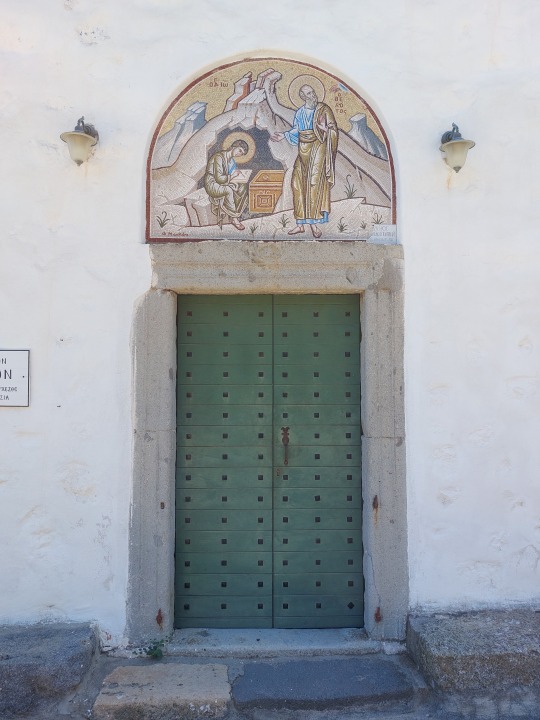
The Cave of the Apocalypse is located approximately halfway up the mountain on the Aegean island of Patmos, along the road between the villages of Chóra and Skala.
This grotto marks the spot where the exiled St. John of Patmos received his visions that he recorded in the Book of Revelation during a time of persecution under the Roman rule of Domitian in the late 1st century.
In John's visions, notice Rome wasn't even acknowledged or addressed by Jesus in his letters to the seven churches of Asia (modern day Turkey) which formed the basis for early Christianity because Rome has always been the great Harlot masquerading as the "one true church" of Jesus Christ. Rome has always persecuted and murdered true Christians. Many Biblical scholars and Pastors have drawn parallels between Revelation 17 and the persecutions of Bible Believing Christians by Rome identifying Roman Catholicism as "MYSTERY, BABYLON THE GREAT, THE MOTHER OF HARLOTS AND ABOMINATIONS OF THE EARTH" drunken with the blood of the saints, and with the blood of the martyrs of Jesus.
https://biblehub.com/kjv/revelation/1.htm
https://www.gotquestions.org/Patmos-in-the-Bible.html
https://en.wikipedia.org/wiki/Cave_of_the_Apocalypse
https://www.conservapedia.com/Book_of_Revelation
https://en.wikipedia.org/wiki/John_of_Patmos
https://www.conservapedia.com/Inquisition
https://en.wikipedia.org/wiki/Inquisition
https://en.wikipedia.org/wiki/Patmos
Questions About Eternity in Heaven and Hell
https://www.gotquestions.org/content_eternity_heaven.html
https://www.gotquestions.org/content_eternity_hell.html
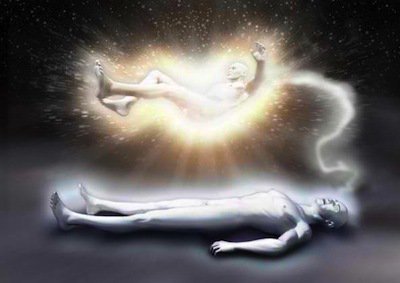
Revelation 21 (The 12 Foundation Stones in New Jerusalem)
http://www.preciousstonesofthebible.com/stonegallery.html
https://near-death.com/city-of-light/
What Happened to the Seven Churches of Revelation?
https://www.imb.org/2018/06/01/what-happened-to-the-seven-churches-of-revelation/
https://www.gotquestions.org/seven-churches-Revelation.html
https://en.wikipedia.org/wiki/Seven_churches_of_Asia
https://www.bible-history.com/maps/7_churches_asia.html
https://lifehopeandtruth.com/prophecy/revelation/seven-churches-of-revelation/
https://www.biblestudy.org/maps/the-seven-churches-of-revelation-map.html
https://www.friendshiptours.com/what-are-the-seven-churches-of-revelation-where-are-they-located/
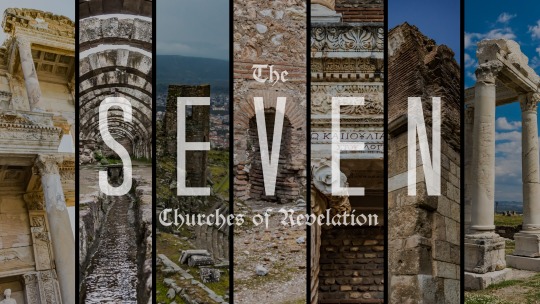
Get a fresh perspective on the book of Revelation and Jesus’ message to churches in all times. Visit the ancient sites of the seven churches described in Revelation. Gain insights into God’s love for the world, His warning and correction for the churches, and His hope and encouragement for the future. A perfect resource for individual or small group study: https://youtube.com/playlist?list=PLPOUA7GLxXIG-Cc84xHWAB9dw25R2Og3Y

In a historic final interview, filmmaker Aaron Russo goes in depth on the insider knowledge given to him by a member of the Rockefeller family: https://www.banned.video/watch?id=62a0c0b6f3feec02cafe1bb3
Federal Reserve System: https://www.conservapedia.com/Federal_Reserve_System
https://www.jesus-is-savior.com/Evils%20in%20Government/Federal%20Reserve%20Scam/federal_reserve_is_evil.htm
9/11: https://www.jesus-is-savior.com/Evils%20in%20Government/911%20Cover-up/911.htm
https://www.banned.video/channel/richardgage911
Feminism: https://www.conservapedia.com/Feminism
https://www.jesus-is-savior.com/Evils%20in%20America/Feminism/feminism_is_evil.htm
Destroying the family: https://www.conservapedia.com/Destroying_the_family
Public school culture: https://www.conservapedia.com/Public_school_culture
Government: https://www.conservapedia.com/Government
World Debt Clock: https://usdebtclock.org/world-debt-clock.html
Mark of the Beast: https://www.markofbeast.net/
https://www.conservapedia.com/Number_of_the_Beast
https://biblehub.com/kjv/revelation/13.htm


#Cave of the Apocalypse#Patmos#Revelation#Bible#God#Jesus#7Churches#John#Exile#Visions#EndTimes#Mark of the Beast#666#Number of the Beast#Sabbath#Mystery Babylon#Mother of Harlots#New World Order#Evil in the Last Days#Money#Greed#Narcissism#Destruction of the Family#Feminism#Federal Reserve#Heaven#Hell#New Jerusalem#Lake of Fire#Revelation17
3 notes
·
View notes
Photo

Patmos, Greece
#patmos#greece#greek island#greek islands#hellas#summer#vacation#vacay#travel#tourism#dodecanese#agean#mediterranean#isle#island#greek#greek aesthetic
96 notes
·
View notes
Text







Greece, the island of Patmos
2 notes
·
View notes
Link
In light of the 75th Anniversary of the unification of the Dodecanese Islands with the rest of Greece (1948 - 2023), the Hellenic Parliament published a small book with the descriptions and pictures of the women's folk dresses of these islands. It is free and available to read digitally on the parliament's website or for download to your device. It is exclusively in Greek, but people learning Greek could use it for practice or non-speakers can look at the photography, if they are interested. The link is on the top of the post.

The pictured attire is from Patmos.
#greece#europe#book#free pdf#free books#greek#greek language#historical fashion#traditional clothing#folk clothing#traditional dress#folk dress#dodecanese#patmos#greek islands#greek facts#greek culture#greek history#rec#link
33 notes
·
View notes
Photo
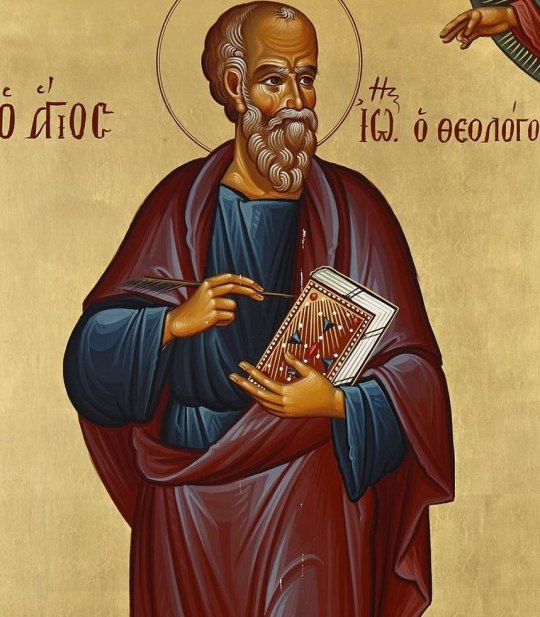
Today we celebrate the Translation of the Holy and Divine Theologian, John the Evangelist. Saint John was the son of Zebedee and Salome (one of the daughters of Saint Joseph the Betrothed), and the brother of James the Great. John and his brother were called at the same time to be followers of Christ and became two of the three (the other, Apostle Peter) closest disciples of Christ. They witnessed the healing of many people, the Light of the Transfiguration at Tabor, as well as many other miracles. Saint John, being the youngest of all the disciples, was also the most beloved disciple of Christ, following Him from the beginning of his ministry all the way to his Crucifixion and Burial. After the Resurrection of the Lord, the Evangelist took the Theotokos to his home as his own mother. After her Dormition, he went to Ephesus to preach the Word of God. Having been denounced by pagans, he was given a poisoned drink, which failed to kill him. He was then exiled to the island of Patmos where he converted many to Christ, but most famously, where he wrote the Book of Revelation, the last book of the Holy Bible. Having returned to Ephesus, he wrote the gospel under his name and also another 3 letters, all a part of the New Testament. Saint John lived to well over 100 and outlived every single eyewitness of Christ. By this time, his message was simple: love one another. He was buried and when some of his disciples came later to farewell him, they found his grave empty, thus his body having been translated to Heaven. May the Evangelist intercede for us all + #saint #john #saintjohn #stjohn #johnthedivine #johntheevangelist #evangelist #divine #jesus #christ #jesuschrist #christian #preach #bible #gospel #lastsupper #letter #translation #disciple #patmos #exile #newtestament #orthodox #saintoftheday (at Ephesus, Turkey) https://www.instagram.com/p/Ci8bKL0rTVI/?igshid=NGJjMDIxMWI=
#saint#john#saintjohn#stjohn#johnthedivine#johntheevangelist#evangelist#divine#jesus#christ#jesuschrist#christian#preach#bible#gospel#lastsupper#letter#translation#disciple#patmos#exile#newtestament#orthodox#saintoftheday
14 notes
·
View notes
